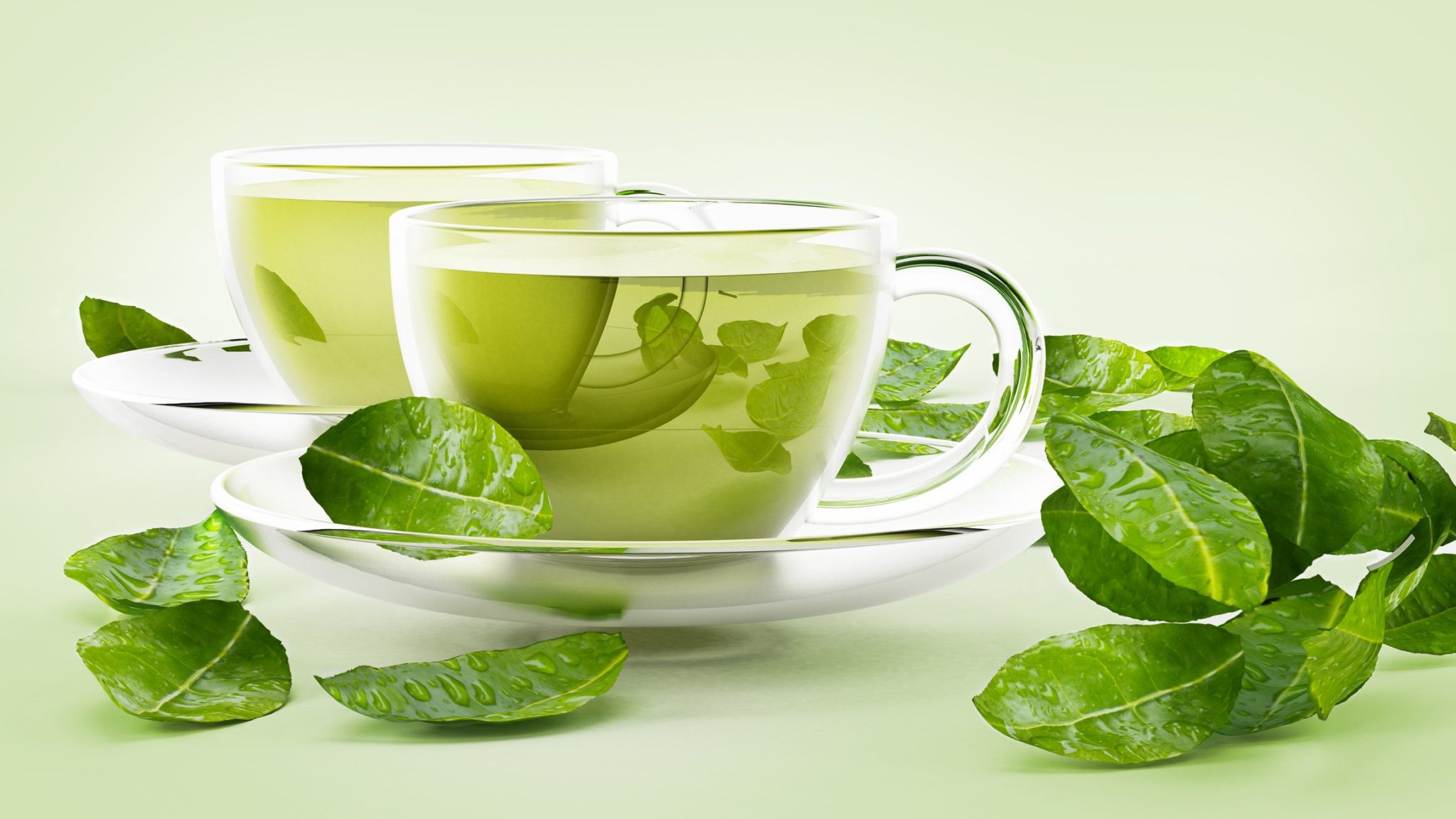
*HerbFEST explores herbal medicine, dietary supplements for treatment of coronavirus
*Severe COVID-19 associated with age, body mass index, ABO blood group in clinical trials
*Lemon juice, palm oil protect against alcohol-induced liver damage in animal, human models
*Fresh chili pepper extract reduces risk of cardiovascular disease in adults death by 26%
Scientists have recorded more breakthroughs in the search for natural cures for Coronavirus (COVID-19). Top on the list is that a combination of honey and black seed helped with symptoms alleviation and viral clearance and reduced mortality in patients with moderate and severe coronavirus disease.
Also, studies have shown that gargling with green tea extracts, or plant juices can lower flu infections and viral symptoms. Similarly, chokeberry or pomegranate juices could be used against Severe Acute Respiratory Syndrome type 2 (SARS-CoV-2) that causes COVID-19, in addition to teas.
Researchers also found that lemon juice and palm oil extract could prevent and treat liver damage from excessive alcohol consumption even as chili pepper could reduce the risk of death from cardiovascular disease by 26 per cent.
Meanwhile, German researchers have established the association between severe respiratory infection caused by SARS CoV-2 and factors such as age, body mass index (BMI) and ABO blood group.
Also, Nigerian researchers at an online event to celebrate the 11th anniversary of HerbFEST (a herb and natural expo), on Tuesday, November 10, 2020, brainstormed on herbal medicine and dietary supplements for the treatment of COVID-19. They also examined COVID-19 as challenge for modern medicine; IHP Detox as a Nigerian herbal medicine for the treatment of COVID-19; immunotherapy in the management of viral infections; and Artemisinin as possible therapy in COVID-19.
The Nigerian scientists that made presentations during the online event include: Founder, Bioresources Development and Conservation Programme (BDCP), Prof. Maurice Iwu; a professor of pharmacognosy at University of Lagos (UNILAG), Olukemi Odukoya; former Director General of the Nigerian Natural Medicine Development Agency (NNMDA) Lagos, Dr. Tamuno Ibuomi Okujagu; a professor of pharmacology, Faculty of Pharmacy, University of Maiduguri,
Isa Marte Hussaini; and a researcher at the Biomedicine Research Group and Effective Care Research Unit, Faculty of Medicine, College of Health Sciences, Nnamdi Azikiwe University, Awka, Anambra State, Dr. George Uchenna Eleje; and Prof. Martins Emeje of the Nigerian Institute for Pharmaceutical Research and Development (NIPRD).
The scientists validated local plants and dietary supplements such as guava (Psidium guajava), bitter kola, garlic, ginger, onions, black seed (Nigella sativa), honey, Vitamin C, Vitamin D3 among others for the treatment of COVID-19.
Indeed, a team of researchers from various institutes across Pakistan, Chile, Canada, and the United State of America (USA) recently conducted a clinical trial to investigate the potential effectiveness of a combination of honey and black seed/Nigella sativa (HNS) in treating COVID-19 patients.
Their study was published on the preprint server of the journal medRxiv prior to the scientific peer review process. Since previous studies show that both components of HNS have proven anti-microbial, anti-viral, anti-inflammatory, and immune-modulatory effects, the researchers wanted to assess the efficacy of HNS in fighting COVID-19.
Honey has been reported to have beneficial effects against many viruses, including herpes simplex virus (HSV), rubella virus, hepatitis virus, and Varicella Zoster virus. It is also effective against many multidrug-resistant bacterial strains, especially when used along with antibiotics. In addition to its immunity-boosting effects that stimulate innate as well as adaptive immune responses, honey has been shown to be beneficial in fighting upper respiratory tract infections.
Nigella sativa is a medicinal plant commonly known as Black Cumin and has been proven to have anti-viral properties against many viruses, including mouse cytomegalovirus and HCV. In vitro studies have shown that it can decrease the replication of SARS-CoV. Some of its components have a high affinity to many SARS-CoV-2 proteins and enzymes.
The researchers performed a multicentre, randomised, and controlled trial in patients with COVID-19 of varying severity. Randomised patients received either a combination of 1 gm/kg/day of honey and 80 mg/kg/day of Nigella sativa or placebo for 13 days. Viral clearance, symptoms, alleviation, and 30-day mortality were some of the outcomes. “The trial results show that the use of HNS in COVID-19 patients promotes viral clearance and reduces the severity of the disease.”
Of the 313 patients, part of the study cohort, 210 patients with moderate symptoms and 103 with severe COVID-19 underwent randomization. Among these patients, 107 received HNS, and 103 moderate cases received a placebo. Fifty severe COVID-19 patients were given HNS, and 53 severe cases received placebo. Administration of HNS led to alleviation of symptoms by day three in moderate cases and day seven in severe cases.
“Anti-diabetic, anti-hypertensive, cardio-protective and broncho-dilatory properties of HNS make it even more beneficial in diabetic, hypertensive, cardiac and asthmatic patients who have a higher COVID-19 associated mortality.”
The study results show that HNS helped with symptoms alleviation and viral clearance and reduced mortality in patients with moderate and severe disease. According to the team, HNS can be used as a safe and effective therapy in COVID-19 patients as it promotes quicker recovery and survival. Thus, they concluded that HNS represents an affordable therapeutic option and can be used alone or in combination with other therapies to fight COVID-19.
Some benefits of this potential treatment option are its ‘over the counter’ availability, affordability – less than $5 for the entire treatment course, and ease of administration as it can be a home-based remedy. Moreover, HNS can also be used in combination with other drugs for increased efficacy. The authors believe that this treatment will significantly reduce the burden on global health care systems.
“A multinational study with larger sample size is required to investigate potential variations in responses to the treatment in COVID-19 patients from different racial and ethnic origins.”
Also, researchers from the Institute of Molecular Virology, Ulm University Medical Center, Technische Universitaet Dresden and CogniVerde GmbH report the effect of green tea and black chokeberry, pomegranate, and elderberry juices on preventing viral infections in cells.
For their study, published on the preprint server bioRxiv, the authors used Vero E6 cells to test vaccinia virus, influenza A virus, adenovirus type 5, and Severe Acute Respiratory Syndrome type 2 (SARS-CoV-2)/COVID-19.
The team mixed the herbal substances with the viruses, incubated them at room temperature, and determined infectivity using tissue culture infectious dose 50 (TCID50) endpoint titration.
After a five-minute incubation with the herbal substances, they found that chokeberry juice decreased infectivity almost 3,000 times compared to a control with only a buffer. The elderberry juice, pomegranate juice, and green tea decreased infectivity by about ten times. An increase in incubation time to 20 min increased the activity only marginally, indicating the antiviral activity is rapid. This suggests that the herbal extracts are generally active against enveloped viruses.
When the researchers tested the swine flu virus (IAV) and SARS-CoV-2, they found the four herbal substances inactivated more than 99 per cent of IAV after five minutes.
Chokeberry juice inactivated about 97 per cent of SARS-CoV-2 after five minutes, while green tea and pomegranate juice inactivated about 80 per cent of the virus. Elderberry juice had no effect on SARS-CoV-2. The naked AdV 5, used as a control, was resistant to all except chokeberry juice.
IAV was the most susceptible to the food products, which showed virucidal activity similar to those of typical disinfectants, indicating the low resistance of this virus family, which is also representative of other influenza strains.
SARS-CoV-2 was more resistant, although chokeberry juice was quite effective, with pomegranate juice and green tea also reducing virus amounts.
The activity of herbal products could be because of their acidic pH, which can directly inactivate viruses, or because of the presence of polyphenols such as catechins, tannins, and flavonoids, which can affect viral proteins.
For example, polyphenols in pomegranates have been shown to inhibit flu virus by affecting the surface glycoproteins and damaging the structural proteins. Catechins, which are found in green tea, can affect both the virus particles and their binding to host cells. Computer simulations have suggested the aflavins might prevent SARS-CoV-2 infection by binding to the angiotensin-converting enzyme 2 (ACE2), the receptor that binds to SARS-CoV-2.
For respiratory viruses, since the infection and transmission occurs via the nose and throat, reducing viral loads early may be an effective strategy for reducing and preventing spread.
For example, herbal products, like the ones discussed, are commonly available and are used as foods. They could be used as “oral rinses.” In contrast to antiseptic oral rinses that have agents that damage membranes, these juices and tea can be used more frequently without any adverse effect and can be simply swallowed.
Studies have shown that gargling with tea, tea extracts, or plant juices can lower flu infections and viral symptoms. Similarly, chokeberry or pomegranate juices could be used against SARS-CoV-2, in addition to teas.
Continued gargling and rinsing the mouth with juices and teas followed by swallowing could be an effective preventive strategy for SARS-CoV-2, write the authors, particularly for people at high risk of infection healthcare workers and the elderly. Swallowing the “oral rinse” is also practical in situations like on planes, trains, and schools, apart from being healthy in general.
Although the amounts of the different antiviral compounds in natural products may vary with different produce batches, natural products with their mix of compounds may be a powerful method of curbing viral infections and there is a need for further clinical investigations.
Also, according to a recent Chinese study, lemon juice could prevent and treat liver damage from excessive alcohol consumption.The study, which used 30 male mice randomly divided into five groups of six, found that lemon juice “exerted hepato-protective effects on alcohol-induced liver injury”.
The study titled “Protective Effects of Lemon Juice on Alcohol-Induced Liver Injury in Mice” was published in the journal BioMed Research International.
The mice were split into one model group (treated with ethanol and distilled water), one control group (treated with isometric distilled water) and three treatment groups (each treated with ethanol and different concentrations of lemon juice), all receiving their respective liquids daily via intra-gastric administration.
Liver impairment caused by excessive ethanol consumption was shown in the model group through higher levels of alanine transaminase (ALT) and aspartame transaminase (AST). Treatment with lemon juice reduced the levels of ALT and AST in serum to normal and “remarkably improved the liver histo-pathological changes”.
Other negative effects of excessive alcohol consumption on the liver, such as heightened lipid peroxidation and hepatic triacylglycerol (TG) levels — observed in the model group but not the control group — were reversed in the high dosage treatment group.
The mice in the model group also developed ethanol-induced necrosis and substantial small fat droplets changes in their livers, while the mice in all the treatment groups showed considerable recovery from ethanol-induced liver damage, with fewer changes in small fat droplets and hepatocytes necrosis features.
The positive effects of lemon juice on alcohol-related liver injury were attributed to lemon’s “numerous beneficial bioactive compositions”, such as essential oils, pectin, phenolic compounds (mainly flavonoids), and vitamins. Vitamin C in particular can prevent “oxidative damage, including lipid peroxidation”.
Lemon’s pectin and essential oils, on the other hand, were shown to have “protective effects on stomach and intestine barrier function”. This could indirectly protect against alcohol-induced liver damage resulting from weakened defensive intestinal barrier function and the small intestine being permeated by bacterial endotoxin leakage.
Despite having established the multiple beneficial effects of lemon juice on the liver (especially against alcohol-induced damage), the study stated that lemon juice’s “hepato-protective effect might be the result of (the) joint action of multiple mechanisms, and it is difficult to clarify the specific mechanism”.
As such, it suggested that in future, the “active components in lemon juice should be separated and identified, and the mechanism of the action of the purified compound should be explored”.
Also, researchers have demonstrated the protective effect of palm oil extract on liver cells.
The current study is published in Current Pharmaceutical Biotechnology.
Palm oil contains abundant quantities of vitamin E compounds, which include tocopherols and tocotrienols. These compounds have anti-oxidant effects, which protect cells from damage from toxic chemical produced by metabolic processes. While tocopherol is a widely known and researched compound, there remains much to learn about tocotrienols.
A team of researchers from Malaysia and Libya recently investigated the effect of tocotrienols extracted from palm oil on mice liver cells.
The team investigated the expression levels of genes influenced by a transcription factor Nrf2, and the translocation of the same factor into the cellular nucleus. Nrf2 is known to upregulate phase II drug metabolism in reaction to metabolic processes. The genes activate cellular defense mechanisms.
The team observed that the translocation of Nrf2 in mice liver cells is both dose dependent, and functionally relevant.
Study Corresponding Author, National University of Malaysia, Azman Abdullah, said: “Our study is the first in vivo study on the effect of tocotrienols on Nrf2on genetic material in the nucleus.”
“We observed that the maximum effect of Nrf2 translocation into the liver cell nucleus after administration of the palm oil extract occurred in 60 minutes of administration.
“The increased concentration of liver nuclear Nrf2 corresponded with increased transcript levels of several Nrf2 regulated genes.”
Palm oil is an economical source of vitamin E, and several studies have shown the beneficial effects on the immune system, which include anti-oxidant and anti-cancer activity as well has cyto-protective actions. Researchers hope that these findings pave the way for easily available remedies for a variety of diseases.
Also, according to an analysis of diet and mortality data from four large, international studies, consumption of chili pepper may reduce the relative risk of cardiovascular disease mortality by 26 per cent. Chili pepper consumption was associated with a 25 per cent reduction in death from any cause and 23 per cent fewer cancer deaths, compared to people who never or only rarely consumed chili pepper.
According to preliminary research presented at the American Heart Association’s Scientific Sessions 2020, Individuals who consume chili pepper may live longer and may have a significantly reduced risk of dying from cardiovascular disease or cancer.
The study by the American Heart Association titled, “People who eat chili pepper may live longer?” was published in ScienceDaily.
Previous studies have found eating chili pepper has an anti-inflammatory, antioxidant, anticancer and blood-glucose regulating effect due to capsaicin, which gives chili pepper its characteristic mild to intense spice when eaten. To analyze the effects of chili pepper on all-cause and cardiovascular disease mortality, researchers screened 4,729 studies from five leading global health databases (Ovid, Cochrane, Medline, Embase and Scopus). Their final analysis includes four large studies that included health outcomes for participants with data on chili pepper consumption.
The health and dietary records of more than 570,000 individuals in the United States, Italy, China and Iran were used to compare the outcomes of those who consumed chili pepper to those who rarely or never ate chili pepper. Compared to individuals who rarely or never ate chili pepper, the analysis found that people who ate chili pepper had: 26 per cent relative reduction in cardiovascular mortality; 23 per cent relative reduction in cancer mortality; and 25 per cent relative reduction in all-cause mortality.
The researcher also noted that the amount and type of chili pepper consumed was variable among the studies, making it difficult to draw conclusions about exactly how much, how often and which type of chili pepper consumption may be associated with health benefits.
Also, German researchers have published a study on the association between severe respiratory infection caused by SARS CoV-2 and factors such as age, body mass index (BMI) and ABO blood group. Their study titled, “Severity of Respiratory Infections due to SARS-CoV-2 in Working Population: Age and Body Mass Index Outweigh ABO Blood Group,” was released prior to peer review on the preprint site medRxiv.
Some initial studies have shown that blood group A may raise the risk of contracting the virus and also carries a risk of more severe disease. The cause for this is not clear. Some studies showed that the A epitopes in blood could facilitate the virus’s entry into the host cells.
ABO epitopes are known to alter and change several proteins, lipids and sphingolipids. Those who have at least 1 A1 allele, write the researchers, could have higher glycosyltransferase activity, which could raise the risk of getting the infection.
In this study, the team of researchers looked at the risk of infection among those with A1 phenotype compared to those with A2 phenotype.
Studies have shown that increasing age and obesity could be risk factors for getting severe COVID-19.
According to the authors, this large study shows that hospitalisations risk due to SARS-CoV-2 infections were moderate among the healthy working population. Age and Body Mass Index (BMI) remained significant risk factors. The authors wrote blood group A had no impact on the risk of hospitalisation. They called for risk-stratified preventive measures to reduce risk and recommended individual counseling for risk mitigation.






